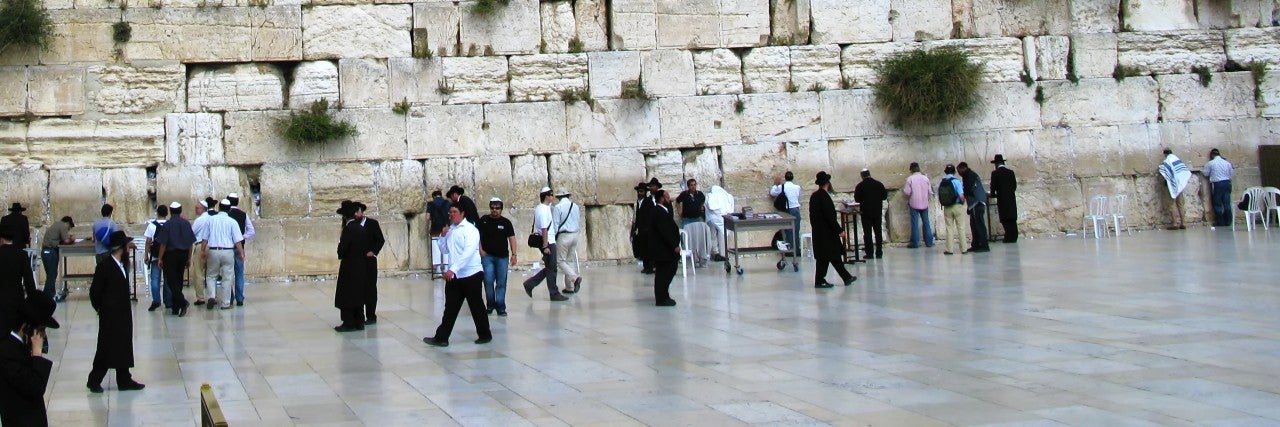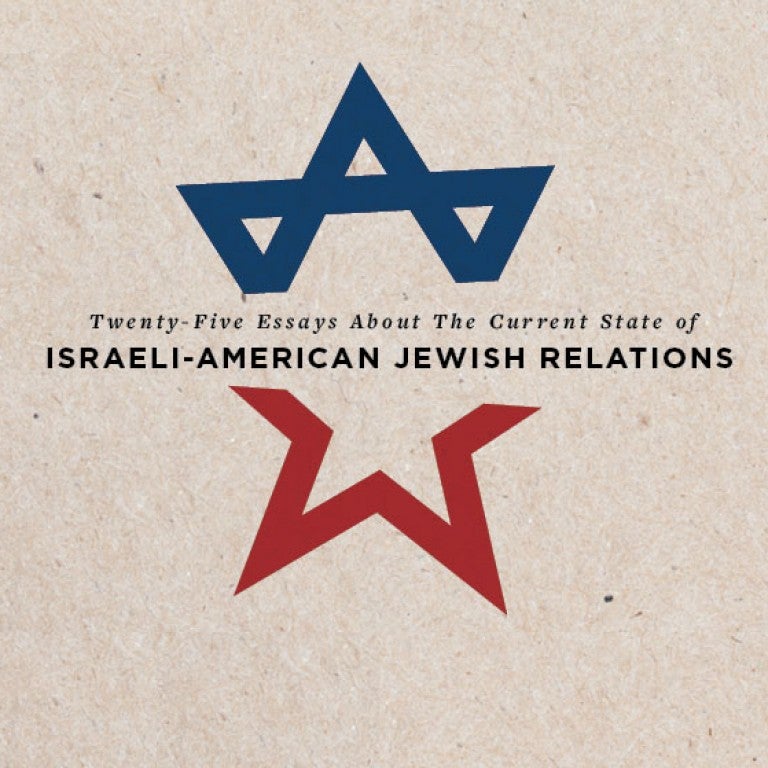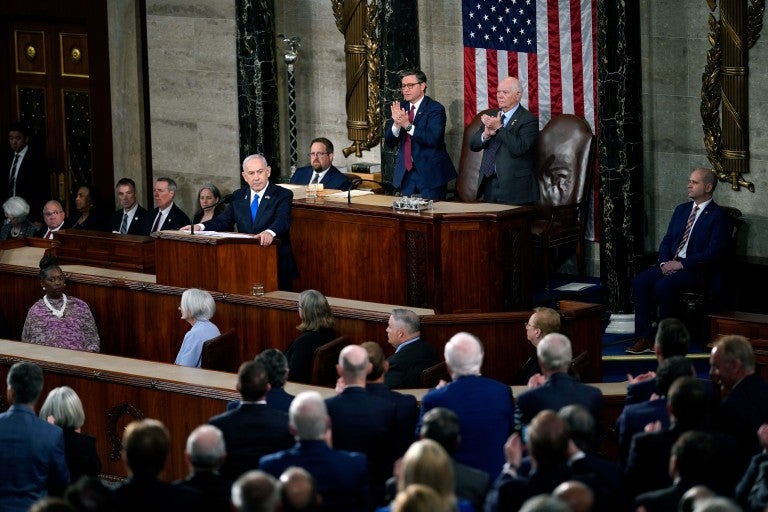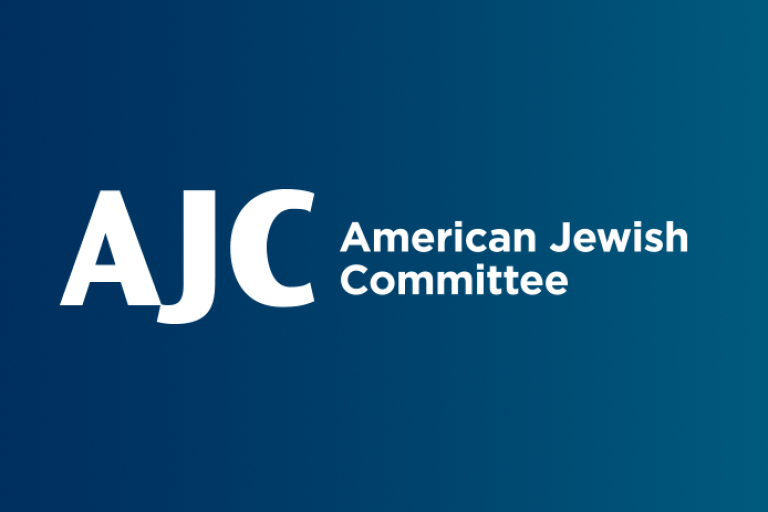June 3, 2018
By Dr. Einat Wilf
This essay originally appeared in the 2018 AJC publication Twenty-Five Essays about the Current State of Israeli-American Jewish Relations
There has yet to be serious conversation, let alone effective action, on the issue of religious pluralism in Israel, one of the core issues that may determine the future of relations between Jews in Israel and in the United States. Most American Jews argue that the “State of the Jews” is not truly a home to all Jews—specifically, Reform and Conservative ones. But Israeli Jews don’t know what they are talking about.
Israelis are under the impression that they live in an incredibly pluralistic society of multiple religions, sects, sub-sects, and various ethnicities within them. Israeli Jews are also remarkably tolerant of various modes of practical ritualistic expression: one can be a devout atheist- shrimp-eating-Shabbat-driving Jew or a fanatical carry-out-all-the-mitzvot Jew, and all are citizens of the state. As a society, Israelis could not care less about how each member expresses his or her Jewish identity. But when it comes to the kind of “pluralism” that American Jews speak of—equal standing in the public sphere for Conservative and Reform streams—Israelis simply do not understand what is it that American Jews want and expect.
Several years ago, I had the honor of speaking at the invitation of Rabbi Cosgrove at the Park Avenue Synagogue, which belongs to the Conservative movement. When the time came for questions, I was asked how it is that I, a self-professed feminist, am not fully mobilized for the cause of the Women of the Wall. I replied that as a feminist in Israel, I am also very much a devout atheist, and therefore the notion that praying to a god that does not exist next to the ruins of an outer support wall somehow matters more than doing it anywhere else, was entirely alien to me. As a feminist in Israel, I have quite a few priorities on my list, but praying at the Wall is not one of them. The audience was visibly shocked by my response. I was shocked that they were shocked.
I am usually considered a successful “cultural translator” between the two Jewish communities, and this was the second time I found myself speaking at complete crosspurposes from my American Jewish colleagues (the first time was when, as an Israeli youth delegate to the U.S., I responded to the question “what is the best thing we can do for Israel?” with a resounding “make Aliya,” only to receive the follow-up question, “and what is the second best thing we can do for Israel?”). I was truly baffled that American Jews who were supposedly savvy and knowledgeable about Israel were surprised to realize that in Israel, the people who shared their liberal leanings were also the ones most alienated from the religious impulse.
It was my colleague at the Jewish People Policy Institute, Prof. Shlomo Fisher, who helped me understand this phenomenon in his superb essay, “American Jews are Protestants, Israeli Jews are Catholics.” He explained that due to their disparate histories, the attitude towards religion in the U.S. is very different from that in Europe. This means that American Jews developed their own brand of Judaism in an environment that views religion as compatible with “pluralism, civil rights, and democracy,” whereas Israeli Zionist Jews developed their brand of Judaism in a context where “any change in the direction of democracy, civil liberties or pluralism” required the overthrow of religion. For Israeli Jews, their “Reform Judaism” was Zionism.
Thus on the topic of religion and state, Fisher noted, “American and Israeli Jews were talking past one another,” and could not come together to formulate effective strategies for change. This inability centers on the role of the Rabbinate in Israel. When American Jews think of the Rabbinate, they feel deep hurt and insult about how any form of Jewish practice that is not fully in line with its extreme interpretation of Jewish Orthodoxy. In contrast, most Israelis barely spend a moment thinking about the Rabbinate.
In another superb essay, Shlomo Fisher explained that religion in Israel is based on the global model—to which the U.S. is the exception—whereby “religious identity is not really a matter of individual choice or conviction, rather, it goes along with one’s national, ethnic or political identity.” Fisher makes clear that in that sense, the Chief Rabbinate is not a religious or spiritual authority, but akin to “a public utility, which is supported by taxes and is available to the entire population, like the postal service.” This means that “as a utility, it is not something that one really thinks about nor is it really an object of personal choice or self-expression.”
The implication of this analysis is that if American Jews want to make Israeli religion more “pluralistic” they need to radically change their approach. They must employ the kind of focused, ruthless, cynical thinking one uses in political campaigns or in business. American Jews first have to make sure they have the numbers – no political change is ever possible without them. And second, they have to stop trying to change Israeli attitudes towards their own brand of Jewish life, but rather to sideline the Chief Rabbinate on the issues they care about most.
To get the numbers, American Jews have to determine who their actual potential allies are. Israeli Jews who actually care about religion are likely to be non-liberal Orthodox Jews who will reject their form of practice completely. Israeli Jews who share their values of pluralism, tolerance, feminism, and liberalism are by and large the shrimp-eating-Shabbat-driving Jews whose attitudes to religion range from revulsion to apathy. If American Conservative and Reform Jews seek partners in Israel who share both their liberal values and positive attitude towards religion, they are limiting themselves to a pool of citizens that will barely get one seat in the Knesset.
Mobilizing secular Israelis for greater pluralism of the American Jewish kind will only be possible if the goal will enhance the lives of secular Israelis. That means mobilizing support for sidelining the Rabbinate on a variety of issues, from kashrut, to burial, to marriage. It is not about theology, but about competition. The Rabbinate is a monopoly, not a place of religious leadership. Monopolies get their power from the state. The Chief Rabbinate, like all monopolistic public utilities—from the electric company to the airport authority—is corrupt, nepotistic, inefficient, and remarkably adept at preserving its power. It can only be cut down to size through sustained political mobilization for the introduction of competition.
In their effort to effect change, American Conservative and Reform Jews need to employ not mild-mannered religious figures who seek to convey to Israelis the beauty of their forms of Judaism, but rather cynical political operators adept at building alliances, and ruthless consultants and investment bankers with experience in introducing competition to long- established state monopolies. The future relationship of American and Israeli Jews on the issue of religious pluralism will depend on some cynical thinking and ruthless actions. That may not sound “nice,” “Jewish,” or “religious,” but that is the way to get it done.
Dr. Einat Wilf is a former member of the Israeli Knesset. She is the author of six books. Her most recent, Telling Our Story, contains her essays on Israel, Zionism, and the path to peace.





